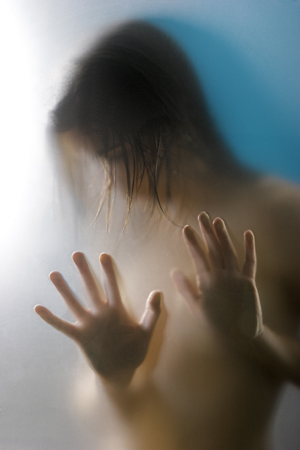Beating the ravages of tranquilliser addiction
When Francesca Townsend* had her first panic attack, little did she know of the struggles that were to come. Francesca knew nothing of the condition she faced and was at the mercy of her GP. It was 1987, back in a time when little research had been done on what some classed as the mental health ‘cure all’ Diazepam.
Read in her own words how this remarkable lady found the strength to overcome her tranquilizer addiction, agoraphobia and panic disorder single-handedly, and how her research even helped educate her GP.
 A difficult time
A difficult time
What a year it had been, one I was pleased to see the back of. My marriage had ended, leaving me with two young children, my dearest friend had died from cancer, I had had major surgery and suffered a family trauma. I was managing two jobs to make ends meet, having to juggle work and family life.
After several months of coping with all these difficulties I had a long overdue day off. I went to bed at night looking forward to spending some ‘quality time’ with my children and catching up on long neglected household tasks. I woke early, feeling quite unwell.
As I headed downstairs I struggled to get my breath and I noticed that I was trembling and sweating. My breathing seemed to deteriorate and I felt an overwhelming need to go outside to get more air. I wandered round and round the garden gasping and shaking. I rang my sister who came round and suggested I phoned my doctor.
Panic attacks
After going in to the surgery he diagnosed a panic attack. ‘A panic attack’ I said, ‘What’s that? I’m not having panic attacks, it’s not in my nature, I haven’t got the time, what can I do about them?’
I was prescribed diazepam – 50 of them – 10 mg. These were to be taken whenever I felt I needed one and I was told to phone the surgery when I needed some more. This was the beginning of a long downhill slide into agoraphobia, multiple panic attacks per day and total despair.
A slow decent into addiction
I didn’t take them right away, in fact I was determined not to take any and I was convinced that I didn’t need them. Then one night at work I had my second panic. I was rushed off my feet and just couldn’t give in to it. My overwhelming desire was to run away and to get home, but I couldn’t do that so I nipped to the toilet and took a diazepam. Within thirty minutes I felt much calmer and continued with my job and thought no more about it.
The attacks started to come thick and fast and the consumption of the tablets escalated along with them. I went back to my G.P. who suggested that I simply take more tranquillisers.
Agoraphobia
I continued to take large numbers of the tablets for the next 18 months. By the end of this time my life was a living hell. I was having panic attacks all the time, being around others frightened me, visitors were a nightmare and I became completely agoraphobic.
I couldn’t even go into the garden or get the milk off the doorstep. My friends did my weekly shop and walked my children to and from school for me. It got to a stage where I wanted to lock myself in my bedroom because that was the only place that I felt safe but eventually even that lost its’ security. I sat on my bed one evening and contemplated getting into the wardrobe but a light went on in my head and I asked myself the question ‘ If I got into the wardrobe where was it going to end? What would be the next move? A cardboard box in the wardrobe?’
The beginning of the end
At this point I was taking about ten diazepam per day. I knew that I must do something constructive to break this spiral. I got a friend to get me some books on tranquilliser addiction. I found that knowledge was a powerful thing.
I learned that tranquillisers could cause panic attacks and I also learned that coming off them ‘cold’ was a dangerous thing. One of the books suggested a reduction programme which seemed like the best way of doing it for me.
I returned to the doctor’s surgery (with the aid of two diazepam) and told my G.P. what I wanted to do. He told me that was fine and he would stop prescribing the tablets immediately. I then explained the dangers of coming off them too abruptly and realised that he knew little of the dangers of the drug he had been giving me for so long.
I asked him if he would be prepared to read one of my books which he accepted. He later thanked me for showing him the dangers and has learned much more about the side effects since and does not prescribe them in this way anymore.
Recovery
Over the next few months I slowly reduced the tablets. I was lucky in that I had weekly visits from a community nurse who specialised in drug addiction. She was very encouraging and helpful and I found that I had an understanding ear each week. I can remember telling her that I had chosen my new curtains because I remembered the sort of colours and patterns that I used to like and not because of an emotional liking of the fabric. I had realised that I had lost the ability to ‘feel’.
Withdrawal
The physical withdrawal symptoms were horrible and the psychological dependency was something I truly had to battle with but I was determined to get rid of the tablets. I needed to know which of the panic attacks were induced by the tablets and which were just ‘mine’. I felt that I might as well have panic attacks without the drugs as with them.
Setting goals
After about 6 months of reduction the day came on the 21st March 1990 - I was drug free. I felt that I could start my life over again. No it wasn’t automatic and a great deal of work had to be done. I set myself small ‘manageable’ challenges and most of the time I managed them – a walk down the garden – a walk round the block – one item in the supermarket.
Just little steps. It was important to me that I felt comfortable with each improvement before I went on to the next. I learned not the ‘beat myself up’ emotionally when I failed but to accept that trying hard was enough.
Twenty years on
I am now twenty years on from this and living a near normal existence. I don’t believe that you ever take the ordinary things in life for granted. I still feel a sense of joy after completing the large weekly shop at the supermarket all on my own.
I went to Scotland for the first time and marvelled at it’s beauty but also at the accomplishment on my part. Perhaps I should consider myself lucky because when I do everyday things I get double pleasure from the experience and the achievement.
Knowledge is power
I am so glad that medicine has moved on now and that diazepam and similar drugs are not just handed out as they were. My advise to anyone suffering in the way I did is to arm yourself with knowledge and to get any help offered to you.
There was little on offer to help back then. Mental health issues were not understood in the way they are now and never forget that there is light at the end of the rainbow however rainy your day seems.
Please see here our Expert article on tranquillisers
Relevant products
Prescription medication addiction links
For advice about addiction to prescription medication, please read our free guides and inspirational stories here:
Facts about prescription medication addiction
Further reading
For more information on Addictions, please visit:
- Addiction - How Much is Too Much
- Smoking - How to Quit for Life
- Smoking - What Happens When you Giving up Smoking
- Smoking - Quick Facts
- Addiction - Prescription Medication
- Sex Addiction - Dependence or Desire?
- My Son Blake Fielder Civil
- What is Addiction
- Causes of Addiction
- Symptoms of Addiction
*Names have been changed






